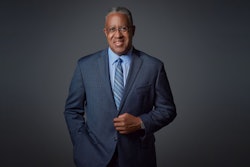HARRISBURG, Pa.
State university professor Dr. Rita Drapkin considers herself a married woman, even though Pennsylvania doesn’t sanction same-sex marriage.
Indiana University of Pennsylvania provides health insurance only to Drapkin, who is assistant director of the school’s counseling center, but not to her lesbian partner of 28 years.
While Drapkin contributes almost $400 a year from her paycheck toward her own health plan, her partner, Cindy Klink, a freelance concert producer, is covered by private health insurance that costs roughly $3,600 and only covers catastrophic illness.
“It’s been incredibly frustrating,” says Drapkin, 54, a tenured professor at the school in western Pennsylvania.
As more colleges and universities nationwide extend health care benefits to same-sex partners, the faculty union that represents 5,500 professors at Pennsylvania’s 14 state-owned universities is still waiting for them — even though a contract ratified more than a year ago opened the door to same-sex benefits.
That’s because the pact doesn’t require the State System of Higher Education to provide same-sex benefits unless the state extends similar “domestic partner” benefits to other unionized state workers.
The Pennsylvania Employees Benefit Trust Fund, which oversees state workers’ health care benefits, voted July 21 to study the possibility of offering them to same-sex couples and unmarried heterosexual couples who live together. There is no deadline for completing the study, however.
The vote was prompted partly by persistent lobbying on the part of the Association of Pennsylvania College and University Faculties, the state system’s faculty union, says trust fund board member Joan Bruce, president of Service Employees International Union Local 668.
“I was actually very surprised to find out that their contract was tied to the employee-benefits trust fund, where they have no seat,” Bruce says.














